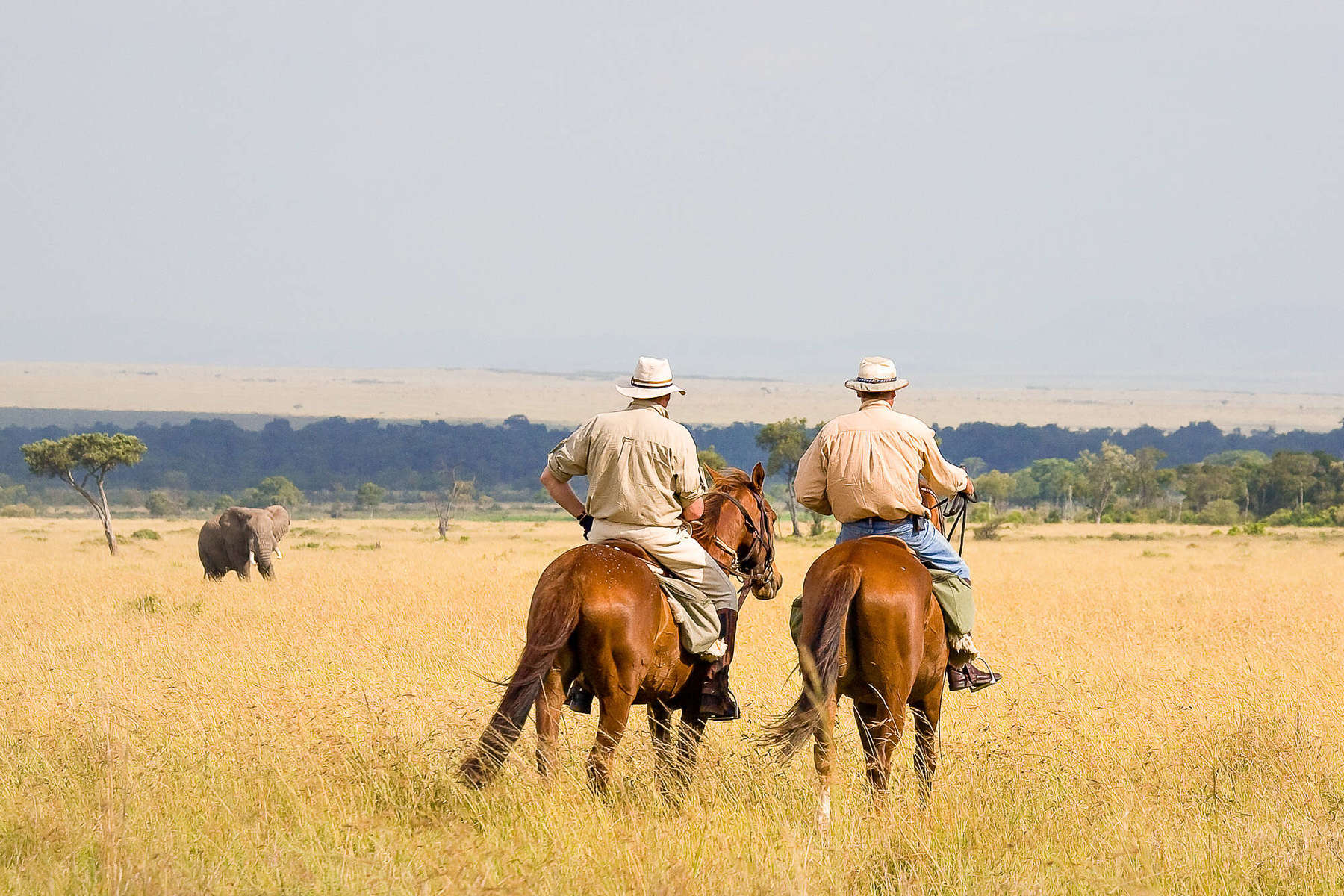Comfort
The mobile tented camp includes a mess tent for meals and spacious 9ft x 10ft sleeping tents with camp beds, mattresses, sheets & blankets. Towels, soap and torches are provided so you can afford to pack lightly!
There is a long drop loo tent for every tent and hot safari bucket showers are always available.
Laundry is available and will be washed by hand on non-moving days whilst you are on safari and dried in the sun. Ladies are asked to hand wash your own underwear for cultural reasons and laundry powder will be provided for hand washing.
There is no wifi available on safari, however there is intermittent
‘Safaricom’ 3G signal across the Masai Mara.
Meals
Breakfast - English breakfast
Lunch is a light lunch in remote locations (salads, bread and cheese, crackers, fruit, desserts). Lunches are often picnic-style.
Dinner is 3-course affair.
All house wines, beers and spirits are included, except Champagne.
Please let us know in advance if you have any dietary requirements.
Climate
The climate in Kenya is good all year round with little seasonal variation. During the day it will get hot while at night temperatures can drop quite sharply and it can feel cold. The long rains fall in April and May and the short rains in November.
The average riding altitude is 5500ft, which results in few mosquitoes. The best months for seeing the wildebeest and zebra migration are August, September, and October.
Tips
Tips are at your own discretion. Tips are accepted in any denomination and collected by the guide to be distributed among the staff. The recommended amount for safari staff is $20 per day from each guest. The suggested gratuity for the guide and assistant guide is $20 per client (per day), and should be handed directly to him.
Please note that all US$ bills must be printed after 2002. Older ones are not accepted in Kenya.
Packing list
NB: Please be aware that Kenya has a strict law against single use plastic bags, which have been banned since 2017. Please do not use them for any of your packing and do not bring them into the country.
Our Recommendations
- Please don't take a hard sided suitcase. Your luggage should be soft sided, particularly for light air transfers. There is usually a luggage limit of 15kgs including hand luggage.
- Wherever possible you should wear neutral colours, such as beige, brown or natural bush colours for riding as bright colours, such as red, yellow or white can startle the wildlife and they will see you long before you've seen them.
- Evenings are nice and relaxed, and long sleeves and light trousers are recommended to avoid mosquitoes!
- We recommend travelling in your riding boots and carrying your hat and some riding clothes in your hand luggage - then if your luggage goes astray you are still able to ride!
- Carry a copy of your passport and insurance details with you.
Head
- Equus Journeys strongly recommend that you wear a riding helmet and that you take your own to ensure a correct fit.
- Sunhat for when not riding
- Sunglasses - with a cord attached so they don't fly off when riding
- Buff or bandana
Upper body
- Long sleeved shirts provide protection from the sun and thorns
- T-shirts
- Fleece, jumper or jacket - the evenings can be cold
- Waterproof jacket - the rains can be difficult to foresee and it's better to be prepared.
- Casual clothes for the evening
Legs
- Lightweight, comfortable riding trousers or jodhpurs - we recommend riding in them at home before taking them on holiday to ensure they don't rub
- Shorts for lazy lunchtimes
- Casual clothes for the evening
Hands and Feet
- Comfortable riding boots. We recommend short boots with half chaps but you may wish to take long chaps to protect against thorns. We don't recommend taking your favourite long leather boots in case they get damaged
- Sandals, flip-flops or trainers for moving around the lodge and camp
- Gloves - your hands are particularly exposed to the sun whilst riding
Nightwear
Medical kit
- Sunscreen and lip balm - must be high factor
- Insect repellent, preferably containing deet
- Any medication you regularly take
- Blister plasters in case of any rubs
- Antiseptic cream, plasters, aspirin, anti-histamine, insect-bite salve etc...
- Spare prescription glasses/contact lenses
- Anti malarial tablets and Yellow Fever Certificate if required (check with your doctor)
Other useful items
- Provided: Aluminium 1 litre water bottles for you to keep, which fits in your saddle bag 1
- Binoculars for viewing game
- Camera and high capacity memory card. Spare battery.
- Bumbag for carrying your camera and small items whilst riding
- Headtorch or torch for moving around camp at night

















